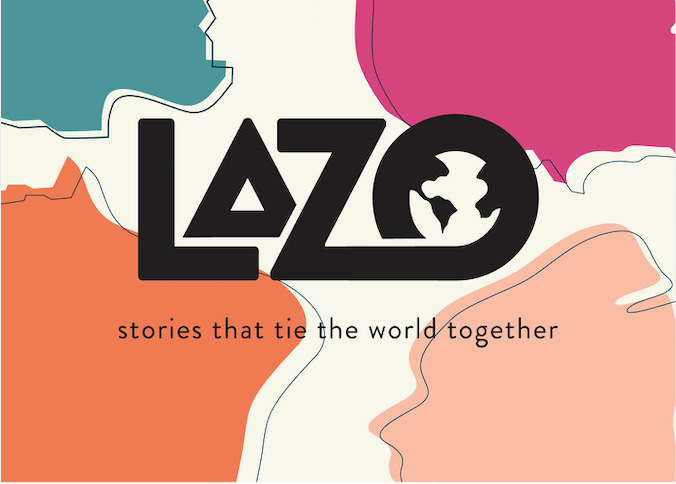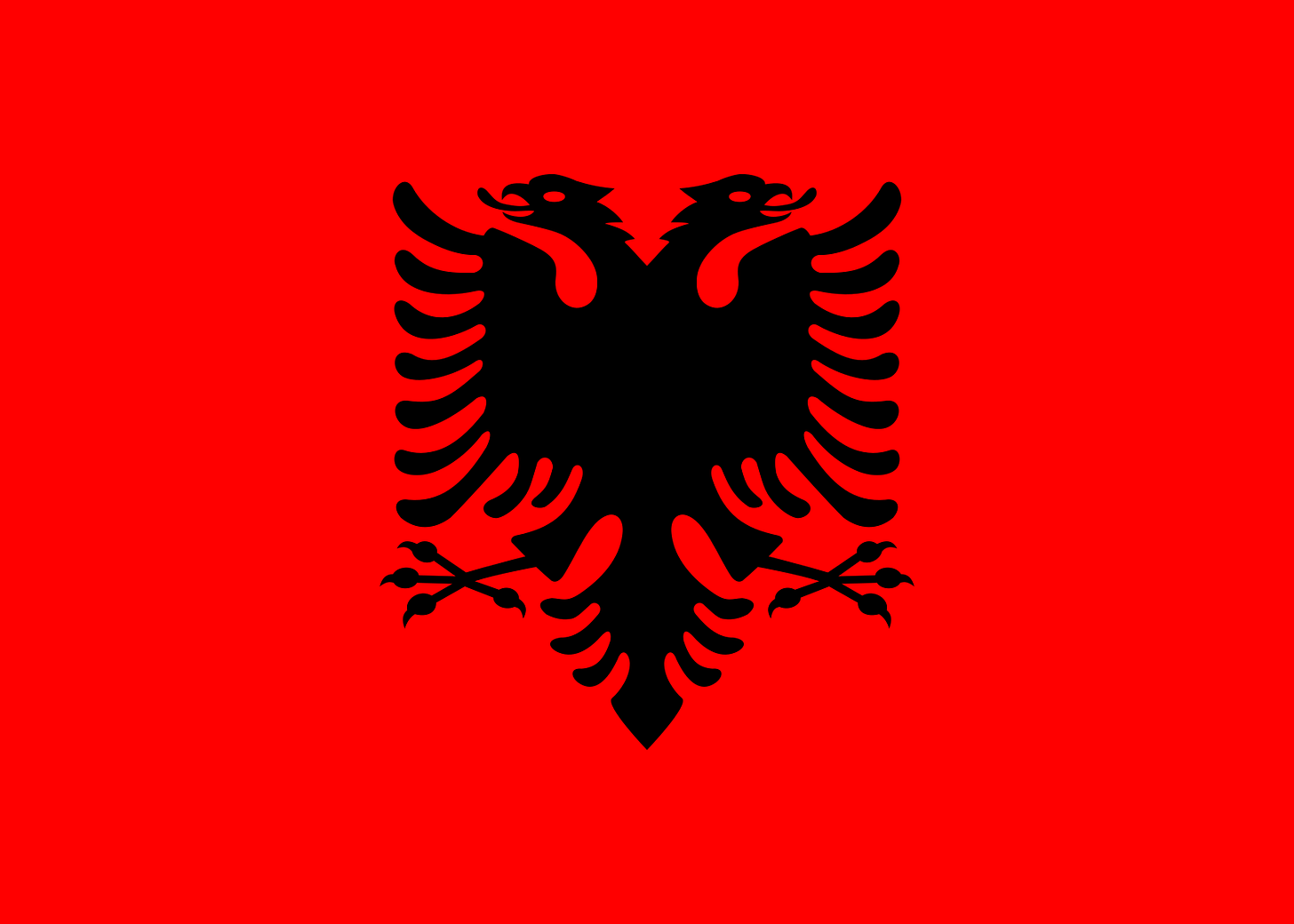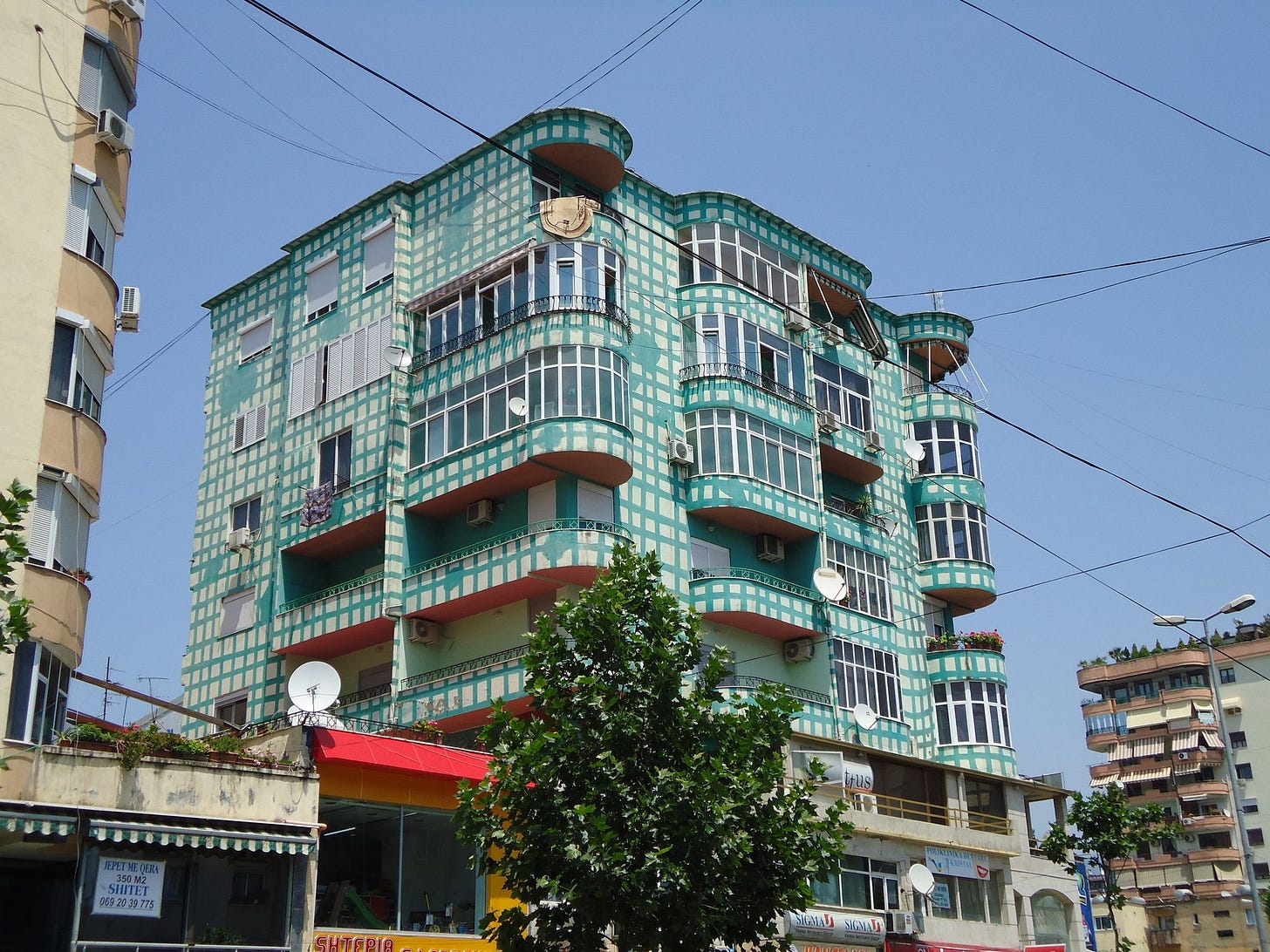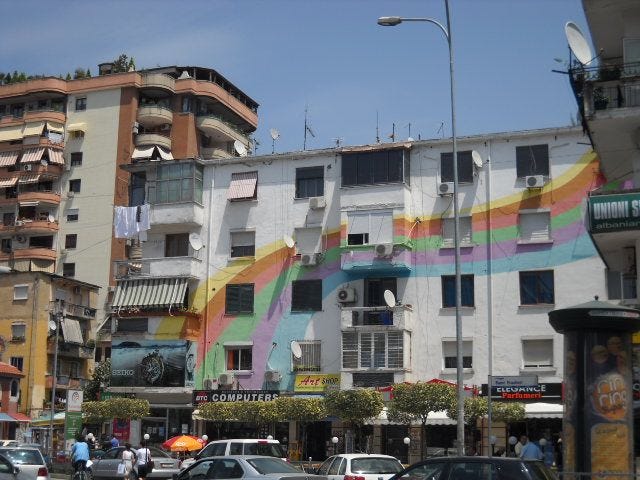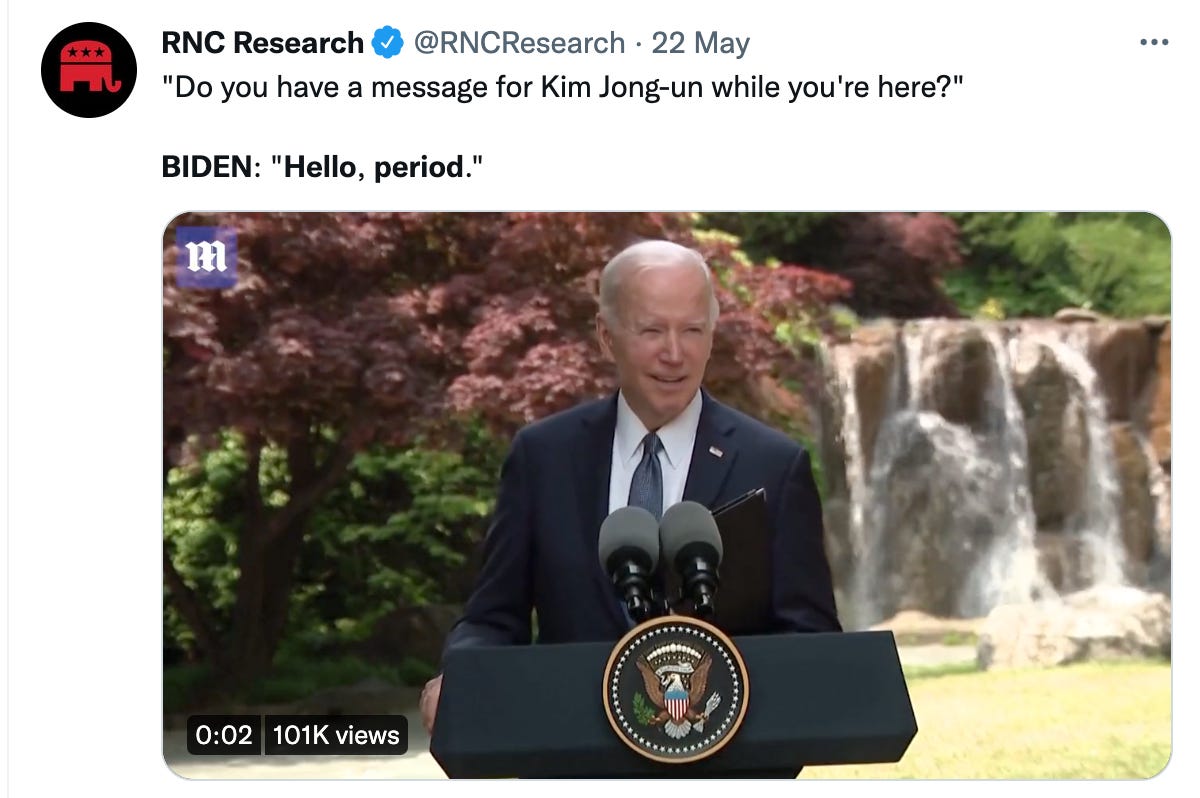#2 Albania
Welcome to the 195 series, where I take you on a mini-tour of every country (and maybe some places that want to be countries). Each week I'll feature a new location. Some you may have heard of, while others may be new to you. The point is to learn and nurture our curiosity about the wider world. Maybe you'll find a new artist or musician you like, too.
Here's the link to copy and paste in your browser if you're interested in supporting this project: https://lazo-letters.ghost.io/#/portal/signup. You can sign up for $2 a month or $22 a year.
I consider I've had a good day when, among the lines I've written, I've produced from my innermost core what I call 'the appearance of the pearl.' That could refer to a discovery, a sense of harmonious cohesiveness, or something like that. In general, literature is a natural adversary of totalitarianism – Ismail Kadare, an Albanian novelist, poet, essayist, screenwriter, and playwright.
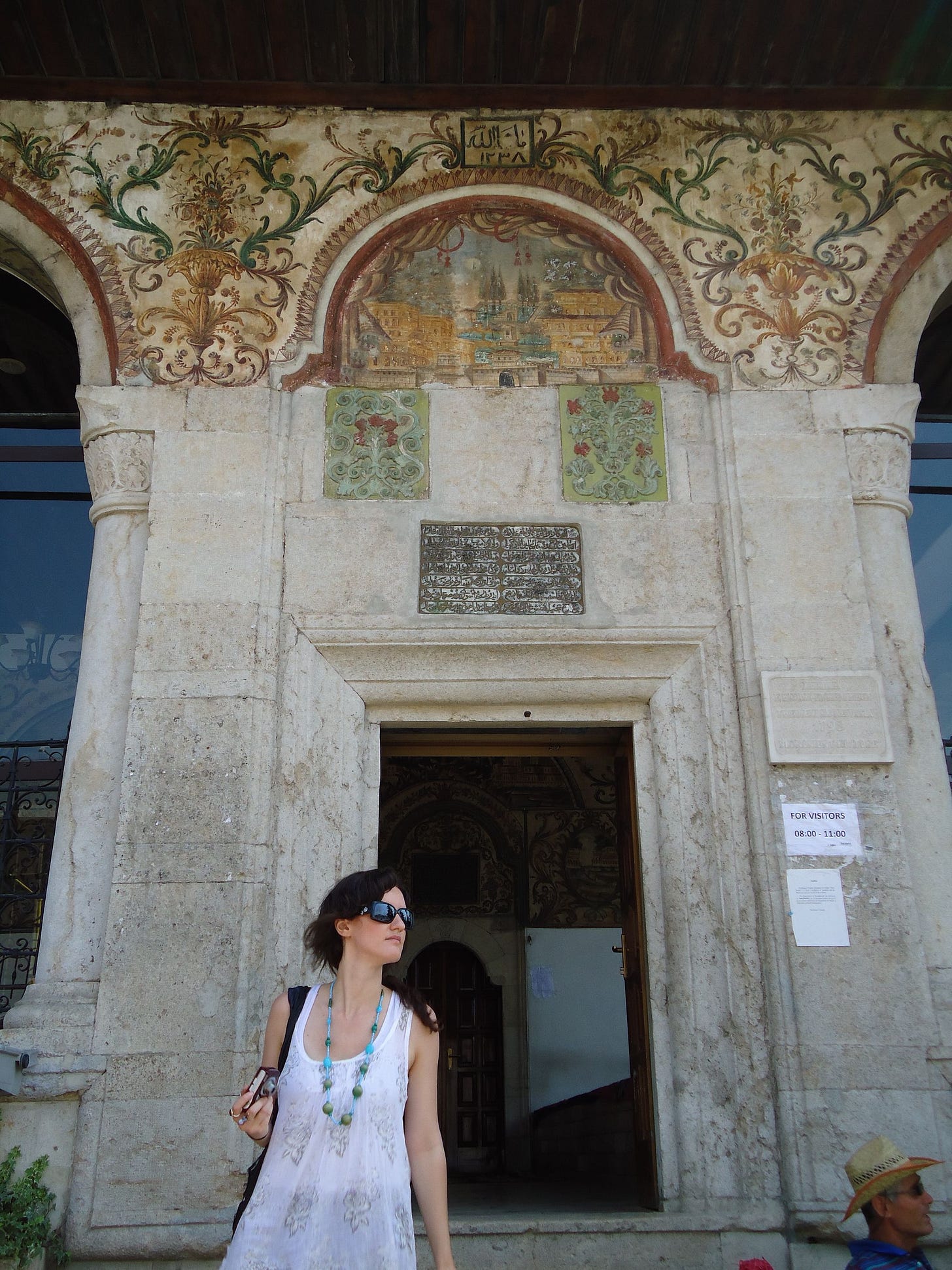
Country Info:
Population: Roughly 2.8 million.
Current government: A parliamentary constitutional Republic. The President is the head of state, and the Prime Minister heads the government. The current President, Ilir Meta, has been an independent since 2017. He was previously a member of the Socialist Party of Albania before forming his own party, the Socialist Movement for Integration, in 2004. The Prime Minister, Edi Rama, is a member of the center-left Socialist Party of Albania.
Languages spoken: There are two main dialects of the Albanian language, Tosk in the south and Gheg in the north.
Religion: According to the 2011 census, a little over half of the country's residents identify as Muslim. Around 10 percent are Catholic, 6.75 percent are Orthodox Christians, and 2 percent are Bektashi, a Sufistic movement. The remainder of the population either declined to comment on their beliefs or identified as atheists.
Standout artist: Adrian Paci, born in Shkodër, Albania. According to the Guggenheim Museum's website, Paci "is known primarily for his work in performance and video, although he explores similar subjects in painting, photography, and sculpture." His work often delves into themes around nostalgia, separation, and memory.
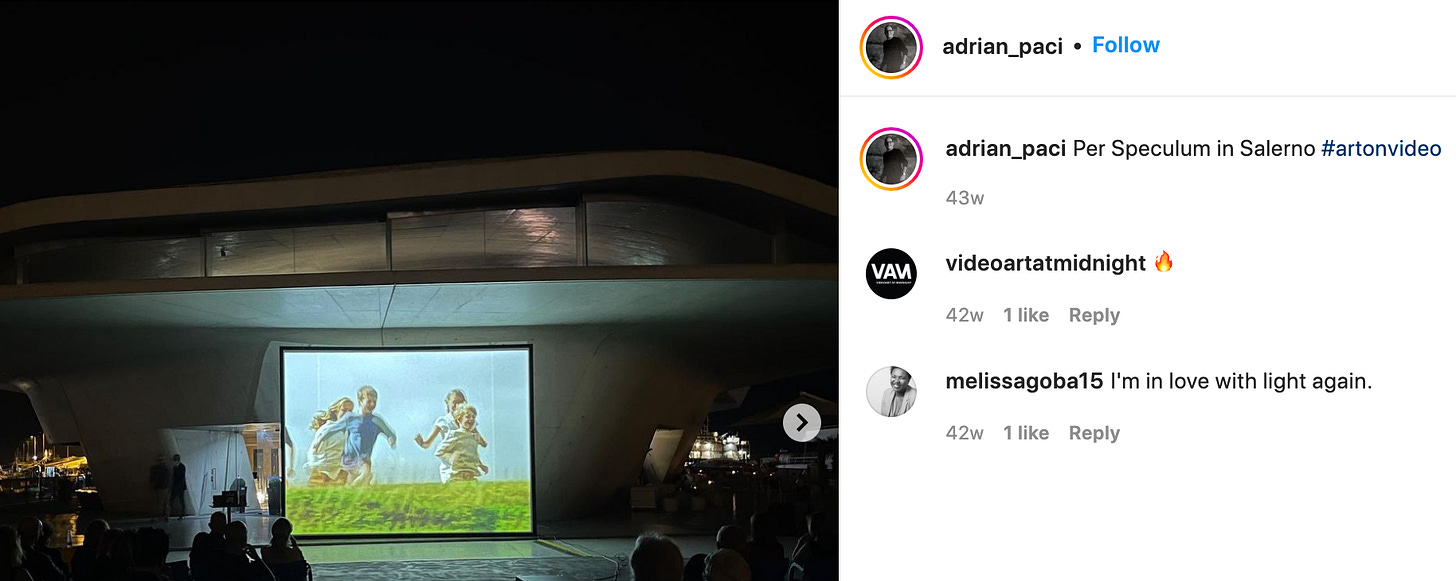
Standout musician: Inva Mula is perhaps not as well-known as some of the many pop stars from Albania or the Albanian diaspora, but man, she has a fantastic voice. Born in Albania's capital Tirana, her parents were also opera singers. She played the soprano in the 1997 SciFi film the Fifth Element.
Standout film: The Forgiveness of Blood, 2011. Set in Shkodër, this movie explores the impact of Albanian blood feuds.
A surprising thing: Albania has something called the Kanun, a set of laws and customs that have existed over the last five centuries. Here are two examples of concepts included in the Kanun:
Gjakmarrja, or "blood-taking," is the social obligation to kill someone or seek revenge to protect your family's honor. According to this tradition, if someone once humiliated, killed, or otherwise sullied the honor of someone in your family, you are obliged to seek revenge on that person or another member of their family. This has led to blood feuds that have lasted generations. Al Jazeera has a profile of the men hiding in their homes for years to avoid being targeted.
Besa. The concept of Besa in Albanian culture loosely means to keep a promise or to fulfill an oath. It is a code of honor that all people live by that's embedded in the Kanun. According to this tradition, if someone asks you to protect them, you must do so with your own life. It's part of why Albanians pride themselves on their hospitality and goodwill to strangers and why some Albanians rescued Jews during the Holocaust.
Story of the week: Albania offered NATO a naval base this week. The Pashaliman base under Albania's Vlora Bay was built in the 1950s when the Soviet Union brought 12 submarines to the country. That was before Albania's communist dictator Enver Hoxha split with the Soviet Union in the 1960s. Prime Minister Edi Rama said he was offering the base to NATO because it might come in handy in "these dangerous times."
What I'm writing:
• The battlefield between Russian-occupied Kherson and the city of Mykolaiv is constantly shifting, but it's never more than 18 or so miles from Mykolaiv proper. Residents live under constant bombardment. “I got used to the shelling; I got used to the bombs; I got used to shooting; I got used to people dying, losing limbs,” one resident from Mykolaiv told me. “I don’t want the war to enter the city, but I am not afraid.” For those of you who don't have access to a National Journal subscription through your university or organization, here's a Twitter link with some takeaways.
• Turkey is lobbying Washington to purchase F-16 fighter jets and the parts to upgrade its existing fleet. Congress is considering the request, but Erdoğan is generating ill will on Capitol Hill as he stymies Nordic NATO membership [This article is unlocked].
What I'm reading:
• The International Crisis Group has an excellent visual explainer of Turkey's conflict with the Kurdistan Workers' Party (PKK).
• The city of Severodonetsk on the east bank of the Siverskyi Donets river and its sister city of Lysychansk on the west bank have become a pivotal battlefield in Russia’s invasion of Ukraine, with Russian forces launching an all-out assault to encircle troops there, Reuters reports.
• Ukraine’s Foreign Affairs Ministry condemned a new Russian decree that would expedite the process of obtaining Russian passports for Ukrainians living in Russian-occupied regions in Kherson and Zaporizhzhia. The Institute for the Study of War said the move could allow the Kremlin to forcibly conscript people in occupied areas to fight on Russia’s behalf. The same report said some pro-Russian bloggers on Telegram continued to criticize the Kremlin for forcefully mobilizing service members from the Donetsk and Luhansk People’s Republics.
• Hundreds of thousands of Ukrainians have been processed through a series of Russian "filtration camps" in Eastern Ukraine and sent into Russia as part of a systemized program of forced removal, CNN reports.
• Ukrainian President Volodymyr Zelensky said he would speak only directly to Russian President Vladimir Putin, not via intermediaries, during potential peace negotiations, Reuters reports.
• Russia will likely default on its foreign debt for the first time in more than a century. An exemption to the sanctions the United States imposed on Russia following its invasion of Ukraine has allowed Moscow to keep paying its debts since February. But that carve-out expired Wednesday, and the United States Treasury Department will not extend it.
• Russian hackers were linked to a new website that published leaked emails relating to Brexit, Google cybersecurity officials told Reuters.
• Hungary's Prime Minister Viktor Orban declared a state of emergency, arguing that the war in Ukraine is creating a constant state of danger, Radio Free Europe reports.
• One of the speakers at the Conservative Political Action Conference in Hungary, talk show host Zsolt Bayer, has a history of racist and anti-Semitic comments, the Guardian reports. He shared a stage with former President Donald Trump.
• The Czech Republic donated attack helicopters to Ukraine and, along with Slovakia, allowed Ukraine’s military to send dozens of armored vehicles across their borders for repairs before they return to the conflict, the Wall Street Journal reports.
• The Polish parliament tweaked a controversial system for disciplining judges to unblock billions in EU pandemic recovery cash. But critics are warning the move is deceptive, Politico Europe reports.
• Turkish President Recep Tayyip Erdoğan said he no longer recognizes the leader of neighboring Greece and will refuse to meet him at a planned summit, the BBC reports (More on this in my article above).
• The British government approved the sale of Chelsea Football Club after the U.K. government placed sanctions on Russian billionaire Roman Abramovich, the longtime owner of the London-based team.
• Israeli lawmaker Ghaida Rinawie Zoabi, who quit the government last week, decided to rejoin the ruling coalition and help Prime Minister Naftali Bennett avoid new elections, the Wall Street Journal reports.
• Israel announced it is responsible for killing a leading Iranian officer, Colonel Hassan Sayyad Khodaei, the New York Times reports.
• Australia’s new center-left Prime Minister Antony Albanese was sworn in on Monday, the Associated Press reports.
• China and Russia vetoed a new round of United Nations sanctions on North Korea for the first time since 2006, CNN reports.
• A new trove of hacked Chinese police photographs and documents shed light on the human toll of Beijing’s treatment of its Uyghur minority, the Guardian reports. You can see the evidence yourself here.
You can also write to me for any reason: c.maza@protonmail.com. Upgrade to a premium subscription by Clicking Here.





